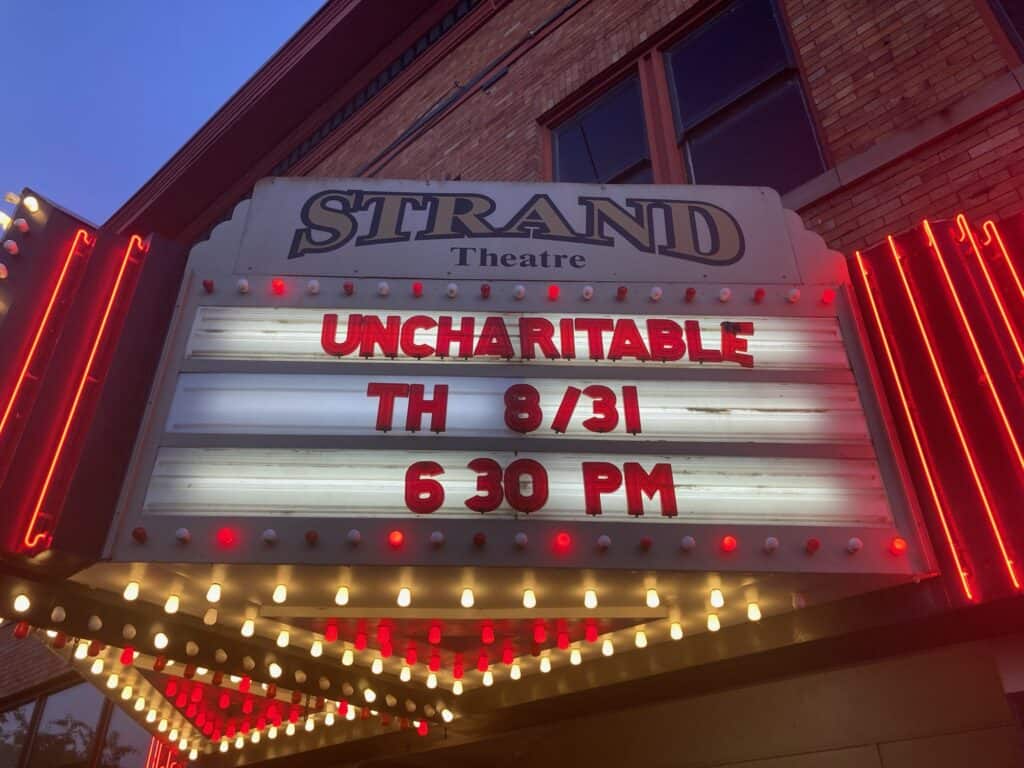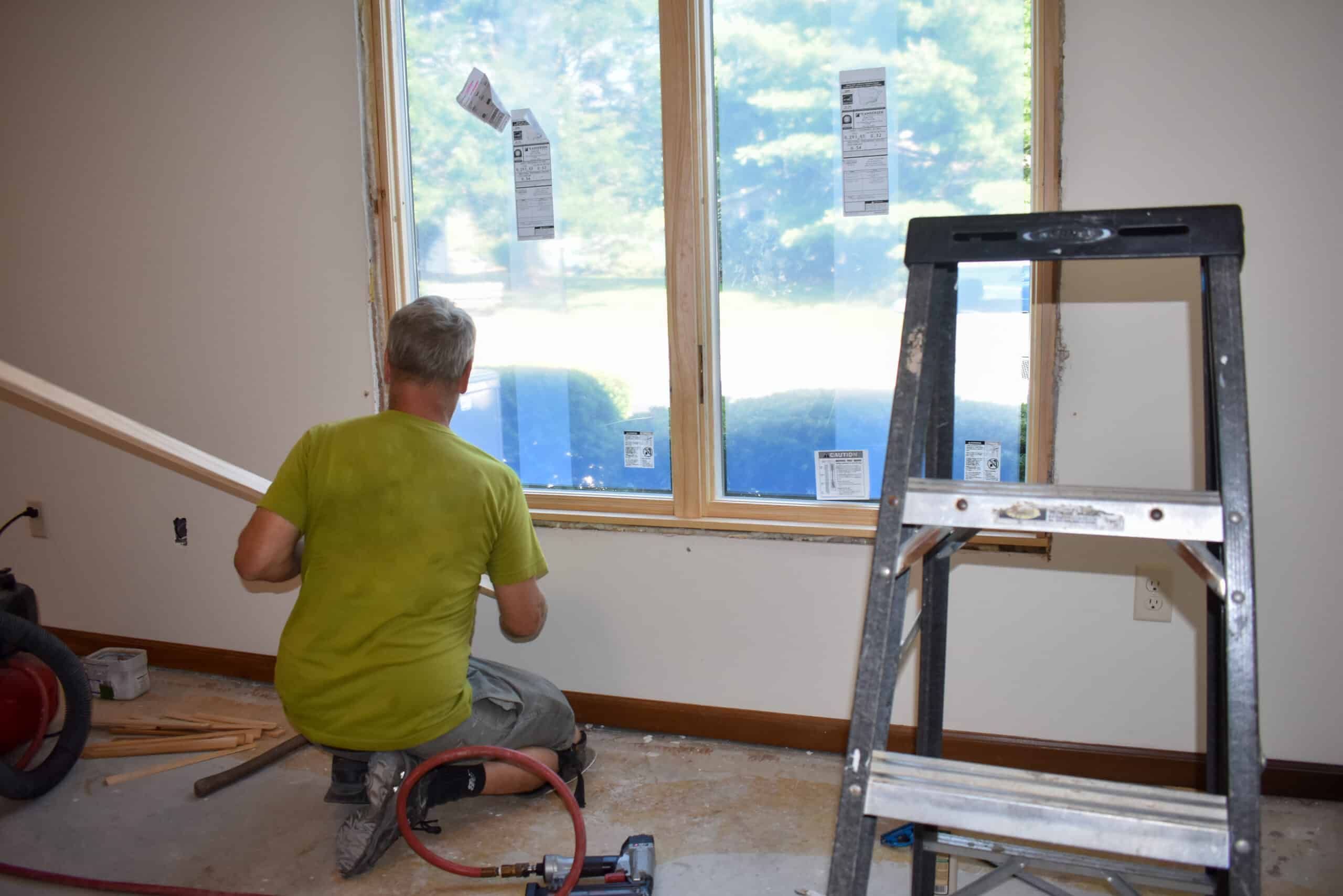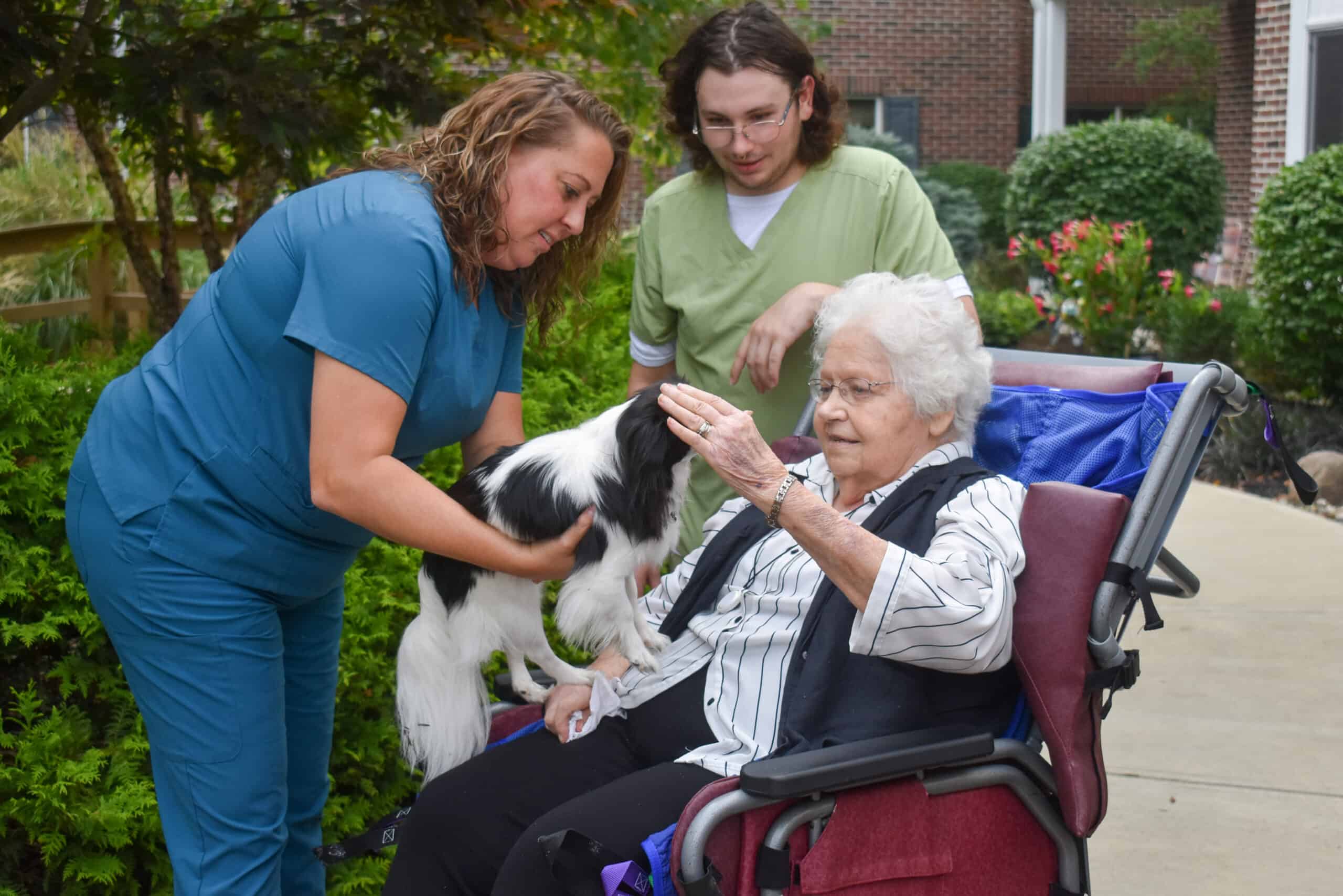
Last night, thanks to an invitation from the Delaware County Foundation, I had the opportunity to view an early screening of the new documentary, Uncharitable, at The Strand Theatre in Delaware. The movie, which expounded on Dan Pallotta’s watershed 2013 TED Talk, went in-depth into the unfair way nonprofits are forced to operate and how a major shift is needed if we truly want these organizations to change the world. Namely, we need to stop insisting that they keep “overhead” low, and instead, allow them to channel funds into having a greater impact on more people. I walked out of the theater feeling so inspired to be a longtime part of this sector, despite the challenges inherent to it. When the movie debuts nationwide on September 22, I hope you consider seeing it. Here’s a sneak peek of the trailer if you want to check it out. This documentary will be a game-changer for you, especially if you are new to the nonprofit world!
I think it is important to note that Willow Brook is a nonprofit organization, and has been since its inception 50+ years ago. But what exactly does that mean?

Over the years, I have heard a lot of misconceptions about what it means for an organization to be nonprofit (some prefer the term not-for-profit, though it means the same as nonprofit). The biggest misconception is that a nonprofit organization does not make money. It does. If it wants to fulfill its mission, at some point, money is needed to make that happen. The difference is, with a for-profit company (think McDonald’s), the money that is made -the profit- is divvied-up among individual shareholders, putting that money into their personal bank accounts and pockets. Not so with a nonprofit. The dollars that are made (or donated, or otherwise brought in) go right back into the mission of the organization. In Willow Brook’s case, those funds go toward investing in our staff and facilities, keeping rooms, apartments, and twin singles updated, improving the dining program, and buying computers, medicine carts, etc. Our organization exists to serve, and the truth is, excellent service costs money.

Another misconception is that people who work at nonprofits all volunteer their time. I will never forget when I worked at Mid-Ohio Food Collective and during a tour I was giving of our warehouse and headquarters, a man asked how I was able to work for free. He assumed since I worked at a nonprofit that I was not paid. (Never mind that we served 20 counties and had millions of dollars worth of food in our warehouse which kept thousands of people from going hungry every day!)
While it is true that some smaller and startup nonprofit staff members may forego a salary for a time, nonprofit work is not free work, and it should not be. That said, few go into nonprofit work with the express desire to become rich. Still, consider this scenario: A McDonald’s executive works to convince more people to buy fast food from the Golden Arches, more often, and is rewarded with a multi-million dollar salary, bonuses, stock options, and more. Contrast this with the nonprofit director who works tirelessly to be able to provide free, accessible medical care to all pediatric cancer patients, wherever they are in the world, and, if she is lucky, makes a decent salary with decent benefits. Which of these jobs has the power to change the world for the better? Yet, we have been conditioned to believe that the nonprofit director is less worthy of financial compensation than our executive friend at McDonald’s, because she has chosen a job that serves humanity. This thinking is a huge disservice to the nonprofit sector, and to the world.

Why does it matter that Willow Brook is a nonprofit? I’ll give you three good reasons, though there are many more:
1. All of Willow Brook’s profits go back into its mission. That means investing in its people (who carry out the mission) and its product (housing and healthcare services).
2. You can feel good about supporting an organization that exists not to make money for money’s sake, but to meet a need in the community and to take care of people in their time of need.
3. Our organization is operated by a volunteer board of directors with one goal: to carry out the mission to serve, and to do it with integrity, professionalism, and love. No one pays their way into controlling shares or special influence. Our end game? People, not pennies.
There is nothing that should stop Willow Brook from dreaming big: dreaming of expanding services or finding ways to reach more people in our communities. Dreaming of creating and implementing innovative programs for dementia care and making those programs widely available. Dreaming of removing barriers to care for who cannot afford it. There are so many possibilities! There is hope in that dreaming, and in acknowledging that remaining stagnant is not a recipe for any of those dreams. At the end of the day, our work is about impact. After more than 50 years, perhaps we are just getting started.
#TeamWillowBrook #ForwardTogether



